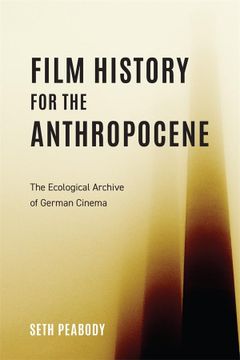Film History for the Anthropocene: The Ecological Archive of German Cinema (Screen Cultures: German Film and the Visual, 23) (en Inglés)
Reseña del libro "Film History for the Anthropocene: The Ecological Archive of German Cinema (Screen Cultures: German Film and the Visual, 23) (en Inglés)"
From its beginnings, some of German film's most prominent genres and directors have focused on the natural world and its transformations by humans. Heimat films, "city symphonies," mountain films, and rubble films all blend the boundary between landscape documentary and fiction film. Yet German film studies has been slow to adopt an environmental focus, concentrating (understandably) on its subject matter's political implications. This book reveals critical connections between German film, sociopolitical context, and environment, showing it to have been a creative catalyst for the social and ecological transformation of the Anthropocene. The book first considers the interplay between German film and environmental history in films and discourses of Heimat. Weimar-era films such as E. A. Dupont's Die Geierwally (1921), Carl Ludwig Achaz-Duisberg's Sprengbagger 1010 (1929), and Phil Jützi's Hunger in Waldenburg (1929) document and create a forum for discussing environmental change. The book then looks at film as a visual archive of and catalyst for infrastructure development, focusing on Metropolis (Fritz Lang, 1927), the mountain films of Arnold Fanck, and the Berlin films Stadt der Millionen (Adolf Trotz, 1925), Berlin: Die Sinfonie der Gro stadt (Walter Ruttmann, 1927), and Menschen am Sonntag (1930). Nazi-era and postwar films are also examined. By exploring German film history alongside environmental history and theory, this book provides a case study of the power of film within processes of environmental transformation.

